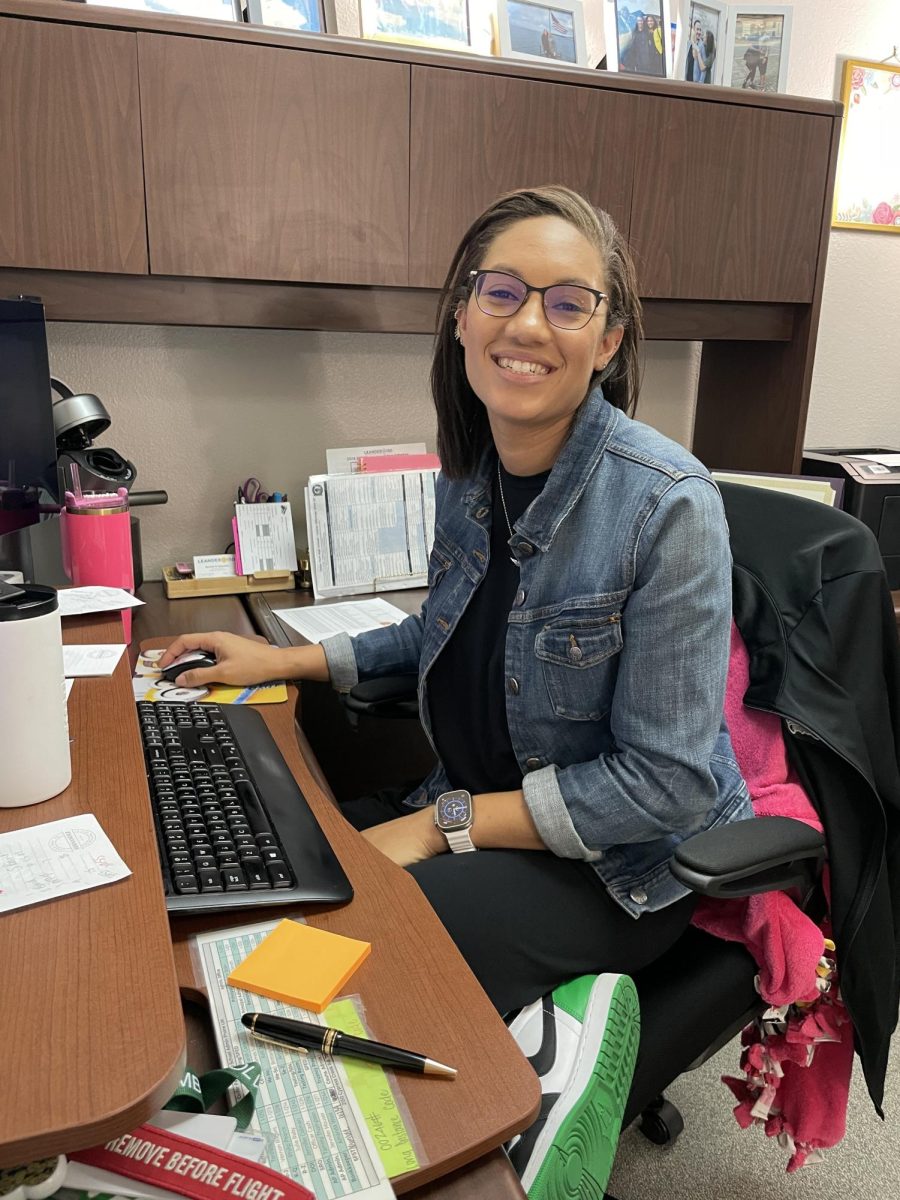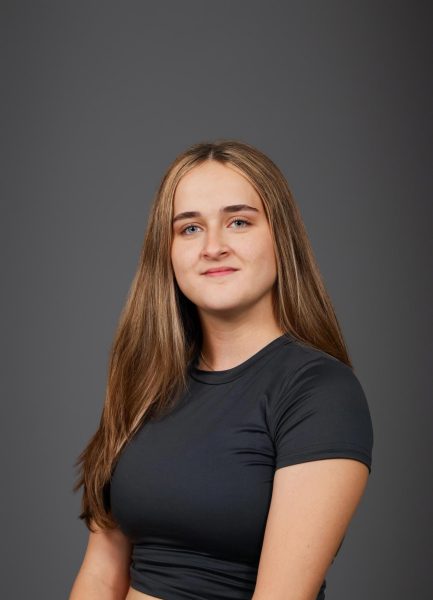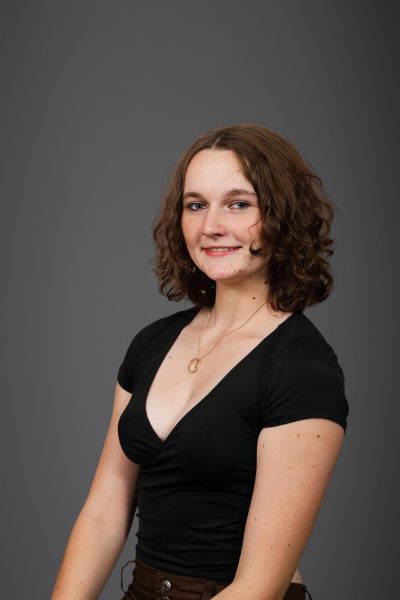Q: How long have you been a school counselor?
A: This is my second year at Cedar Park and my sixth year as a counselor. I did four years at Vandegrift before I came here. Well, I started here as a teacher, so here, then Vandy, now I’m back.
Q: What did you teach here?
A: I was a culinary teacher and I coached volleyball and basketball.
Q: What made you want to be a school counselor and what was your journey to becoming one?
A: Actually, when I was here at Cedar Park is when I kind of had this like, ‘man, I think it’d be so cool if I could transition into being a school counselor’ and I just think because I saw that there was such a large group of kids on campus that were so amazing and I wanted to try and connect it all together. So, it was here that I actually kind of found that passion. I coached, and so there’s naturally a passion of wanting to mentor and help kids figure out what they want to do after high school and things like that. You can do so much through coaching, and I could do so much as as a culinary teacher, just having such a small group of kids, but I really wanted interact with more kids or just try and make the campus wide effort better. I felt like the best way to do that was to become a school counselor.
Q: What’s your favorite part about being a counselor at CPHS?
A: Oh, man, all the things. My favorite part is that I get to interact across all grade levels through the good and the bad. I mean, being a teacher is awesome and I love it, but that’s a concentrated group, you know. I wasn’t as involved with the whole school, so I think that’s what I really loved is that it doesn’t matter a grade level, doesn’t matter sport, club, whatever, I’m always interacting with different groups of students.
Q: What do you find most rewarding about being a school counselor?
A: I think just like teaching, when you see a kid get it, it’s pretty awesome. When you see the light bulb go off and you see a kid find a passion or an interest, or you see a kid go from not being able to handle something to being able to handle it, it’s that light bulb moment that makes it worth it. We’re doing it.
Q: What does being a counselor mean to you?
A: It is just about making every day a good day kind of thing. We all get it’s kind of as cheesy or corny as it is, right? Like most of the announcements end with have a good day or not, the choice is yours. It doesn’t mean that it’s an easy choice, and I think that’s kind of my role as a counselor is to say, it is hard, absolutely. Things are hard, everything’s not gonna be easy, but that doesn’t mean we don’t have a choice. I think that’s my role, it doesn’t matter if it’s academically or socially or emotionally, whatever it is, it’s about recognizing that everything is a series of choices. Some are easy to make, some are hard, some feel good, some don’t. Let’s figure out what our options are and let’s make the choice.
Q: How do you prepare yourself emotionally for sensitive topics with students?
A: I think I wear a lot of hats, but the biggest thing is to prepare as a human. We live in a culture in a world where it’s very easy to disconnect. Empathy can be something that is difficult. [I have to] remind myself that we are all human beings, which means we all carry lots of emotion with us, and to make sure that I am thinking about being empathetic. How can I sit with this person in their moment so that their feelings can feel real to me? I do that with any person, your perception is your reality and I would never want anybody I’m interacting with to leave thinking, they just dismissed my emotions or they just told me to get over it, or they didn’t understand what I was going through. I may not be helping you come towards a resolution, but if I can sit with you in that moment and you feel that I’m just as connected to that moment as you are, then we’re getting somewhere. It’s kind of like, let me take a deep breath, let me put my mind in a set that allows me to connect to the emotion that that student, teacher, parent is feeling so that I can be as authentic as possible and not come off as a front or a fake.
Q: What steps have you personally taken to ensure that a student is as comfortable as possible?
A: I think I always try to be as up front as possible. I think the truth is always going to be the best route. When kids come in here, I like to make sure they understand, you know, what the rules of confidentiality are or what are the things that I’m looking for. If I call a kid down here for a reason, let’s just attack it head on. I like to try and create a calming space where kids can feel like it’s relaxing. I also just try to connect to the emotion because then I feel like if you think that I recognize your emotion as real, then we’re more likely to get somewhere faster. I want students to feel like we are seeing eye to eye, especially lots of times where the relationship for students out of school means ‘I’m a student and there’s an authority figure.’ When you come to the counseling office, yes, I am a faculty member, but this is the place where you share all the things, no matter my titles so that I can figure out how to best help you. I am trying to get kids to realize that.
Q: How would you de-escalate serious or tough situations?
A: Well, I think it depends on what it is. The need for de-escalation looks different for every single individual, and I think that’s an important part to remember that what I might feel or think or would do in this situation does not mean that it is what is right for that person in that moment. That’s where the sooner the connection can be created as far as you, the student, the person, understanding that I am hearing you, that I hear your emotions, that sets a level of agreement as far as what we’re gonna do to move forward. That’s always my biggest thing is to try and make sure that a student understands I hear them, because I feel like if you’re like, ‘okay, they hear me,’ that naturally calms you down because you don’t feel the need to yell or scream or get excited or overly frustrated about something because you understand that that person is listening to you. If someone’s feeling anxious or not, it’s about keeping us in the here and now, kind of focusing on what’s happening right at this moment to help control the environment a little bit better. Every situation is gonna be 100% different because every student’s different, parents are different, family members are different. What is causing the stress is gonna be different, and so it’s really taking a lot of cues from that person, which is why it’s like just tuning into the emotion so that I can see what’s happening, and then allowing myself to stay calm, because oftentimes we will react as well. Meaning, like if two people are involved with each other, if one person yells and another person starts yelling, well, then the other person’s gonna yell louder. So like keeping myself in an ability that shows like, this is a calm manner, this is a calm environment, this is a safe environment. It helps kind of pull them down or at least not cause them to keep escalating.
Q: When you were in high school, did you visit the counselors office?
A: Honestly, no. When I was in high school, I probably only went to the counseling office to turn in my college application back when you had to mail them off. I don’t think that I went as like I’m having a bad day. I do think it was probably just to do something academic related, which is sad, because I feel like I probably missed out on a little bit of that. It is not just academic advising, it is everything. This is just like we tell you guys all the time with, you know, think about the whole student and everything you do, you’re not just academics. Same things with counseling, we’re not just academics, we’re holistic, we want to help strengthen every single part of you.
Q: Have you ever shared experiences with a student?
A: The way that I tend to counsel is that everything should be focused on the person on hand. I certainly may express that I share your frustration or I might have had a similar situation happen to me. I do that from a relatability standpoint, to know that we’re all human and the anxiety you’re having right now, I can be anxious too, and I’ve been in your shoes before, or I’ve gotten that before. I definitely want students to feel like there’s a relatability standpoint, because oftentimes we feel isolated, especially in this culture now, where you can truly have a platform where you share only what you want to share. It seems like everybody can be living this amazing, perfect life and you’re the only one that might be going through these struggles. I want kids to know that there is someone else has gone through the same thing.
Q: What’s the most important thing you want students to know about their future?
A: That it’s theirs. That way the choice is yours. I say that, like jokingly kind of, but that it is theirs. There’s so many influences on your life that it feels like it might not be yours, but it is definitely all your choices and your life and only you have to live with it. Our parents want to influence our decisions. The media wants to influence our decisions. Your peers, your teachers, myself, all of us have an opinion about the choices and the things that you should be doing, but we don’t have to live with those consequences or those actions or whatever set in motion for making the choice that we might be telling you to make. Only you going through it actually have to live that, so knowing that, the choice should be always your choice. With that, your future is truly yours to determine because you are making those choices, you get to take all the information in, and be respectful about receiving it. That’s all you have to do is receive it, then you put it together to make that choice.
Q: What are some things you want your students to know about you?
A: Oh man, I don’t know. I used to be in the classroom here too, I used to coach here, and that gives a little bit more relatability as like, I was just in the hallways in the classrooms I understand, you know, the Cedar Park way and those types of things, so I definitely like my kids to know that, you know, I used to be here. And well, I like minions, so I mean, if you walk in my office, it’s pretty obvious that I like minions.
Q: Would you call yourself introverted or extroverted and why’s that?
A: If there was a happy medium, I would probably say I’m a happy medium, but to pick, I’d probably say I’m an introvert, because I’m okay being just by myself. I’ve always been that way where, in high school, I’m okay if it’s just me and that’s cool. I think the counselor in me likes being that way too, because I’m not seeking the interaction, which means it allows me to watch the interaction, so I’m constantly observing other people and how they’re interacting and why they’re thinking you’re talking, you’re saying the things they say. I do think that that helps me be a better counselor because just over the years it’s fine-tuned my ability to just listen. Where naturally sometimes extroverts talk and talk, or they are that outgoing, that the attention can shift on them. Whereas a counselor, that might not be the best way. Sometimes I do try and make the attention on me if I see that, you know, someone’s uncomfortable with the attention on them. So I think that’s why I’m a happy medium. I’m totally okay being by myself, the large crowds or interactions, groups, things like that. I’m totally cool with and don’t mind speaking in front of large crowds, I love teaching, I love group atmospheres and dynamics, but I’m totally okay being just me.
Q: What do you do outside of school, like what are some of your hobbies and interests?
A: Oh my god, I’m a mom of two, so I don’t feel like I do a lot besides to make sure my kids don’t, like, accidentally put each other in the hospital, so that’s kind of my life right now. And I do enjoy cooking. Like I said, I was the culinary teacher, so I think that is still super fun for me to be in the kitchen. I miss teaching culinary, it was a fun time, so those are my hobbies. I would like to start reading again, but my children take that time up right now. I do love my children, don’t think that I don’t, they just take up a lot of my time.
Q: How old are your kids?
A: I have a kindergartener, who’s going to be six next week, and then my littlest just turned three last month and they are full of lots and lots of energy.
Q: What are some of your favorite tv shows and movies?
A: Oh, man, as mentioned my children dominate my life. So I would like to tell you that there’s probably something more, you know, mature or something that adults are watching. Currently, you know, I think the only thing I watch is like ‘Bluey.’ Very well versed in all three seasons of ‘Bluey’ and ‘Frozen’ – I could probably recite the first and second one by heart, so I don’t yeah, I don’t really have TV that I watch. If I get to watch TV, after my children go to sleep, it’s usually ‘House Hunters,’ I love looking at houses. They like tour houses and see just the ones they’re gonna buy. That’s my way of traveling, because I don’t do any of that. One day, but I’m like, oh, yeah, look at that place, that’s great, look at the international ones or even the ones that are within the U.S. Just tour from my couch and look to see what the homes are and that’s the only thing I probably do to get to watch.
Q: Do you have any old time, favorite movies that you could think of?
A: Oh, man. I feel like that’s also changed. I probably say one of my old time favorite movies is ‘Dirty Dancing.’ I probably would say the most watched movie, good or bad, probably bad parenting on my part, but the most watched movie in my house is ‘Top Gun.’ My husband’s a pilot and so we watch a lot of aviation things, but my kids have fallen in love with fighter jets and being a pilot, so we watched a lot of ‘Top Gun.’ I think that probably my husband’s favorite movie is ‘Top Gun,’ and so my kids for better or worse know probably every word to that movie and can sing the songs, but there’s worse movies that they can know the words, too.
Q: What has been the biggest influence on your life and career?
A: There’s a lot of influences that I’ve had over the years. I don’t know. I’d honestly say my interaction with students has been a really big influence, it’s part of the reason why I got into counseling, just that day to day interaction. As I’ve gotten older, as I became a mom, that became a really big influence. As far as just talking with students became more relatable because I now have kids of my own and though they are very young, I always know like, they’re gonna get older one day, some of the problems that I’m talking with now could very well be some of the things that I’m gonna be talking with my own kids about. There’s more of like, let’s try and get it right, but I do, I mean, I think my interaction with kids over the years, for better or for worse, have been some of my biggest influence to try and make sure that every day I’m showing up and getting it right because I mean, every day, you guys are showing up every day, so we gotta show up every day and do it, you know? Sometimes you guys, I don’t think you realize how much you might motivate the adults on campus because we all are in that same spot where we don’t always feel like we want to go. We’re waking up early, but sometimes we see and we’re like, man, you know what, these kids are up here and they’re doing it. Some of you are going through hardships and yet you’re here because you know lots is expected of you and it’s like, then that means I wanna be here and I’m gonna do my best too.



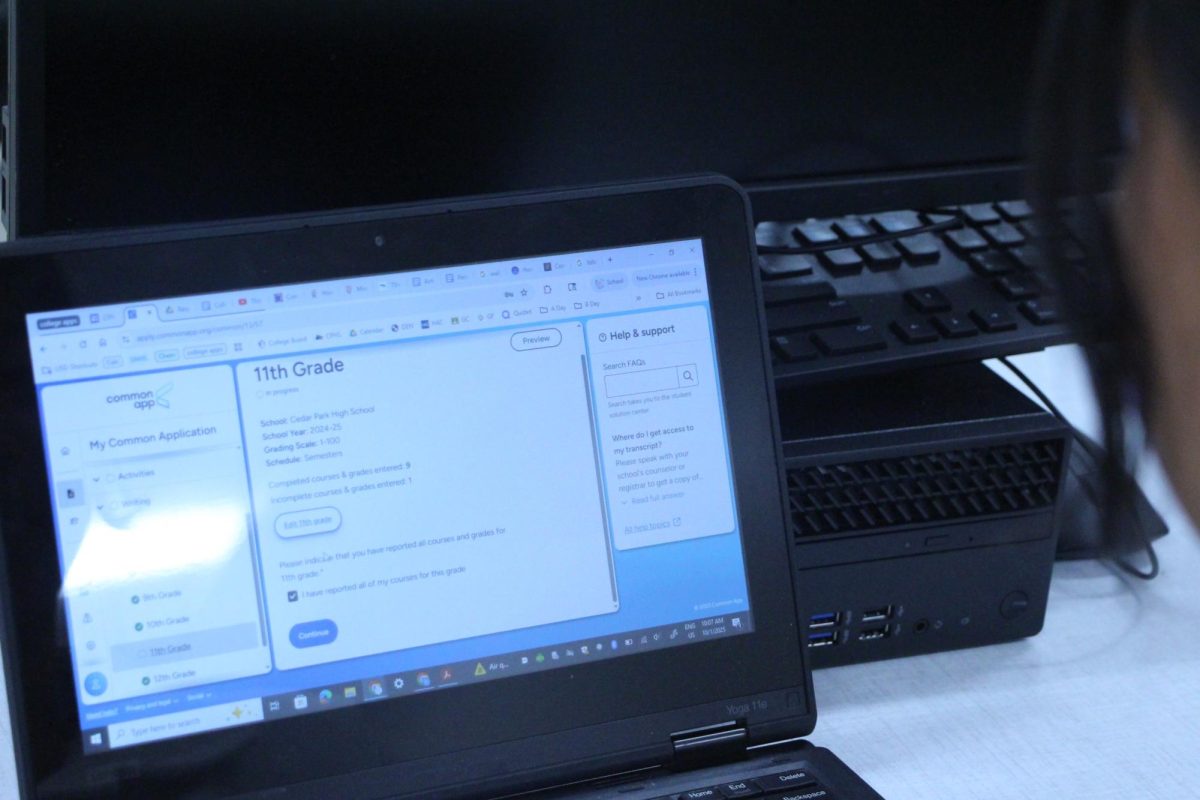
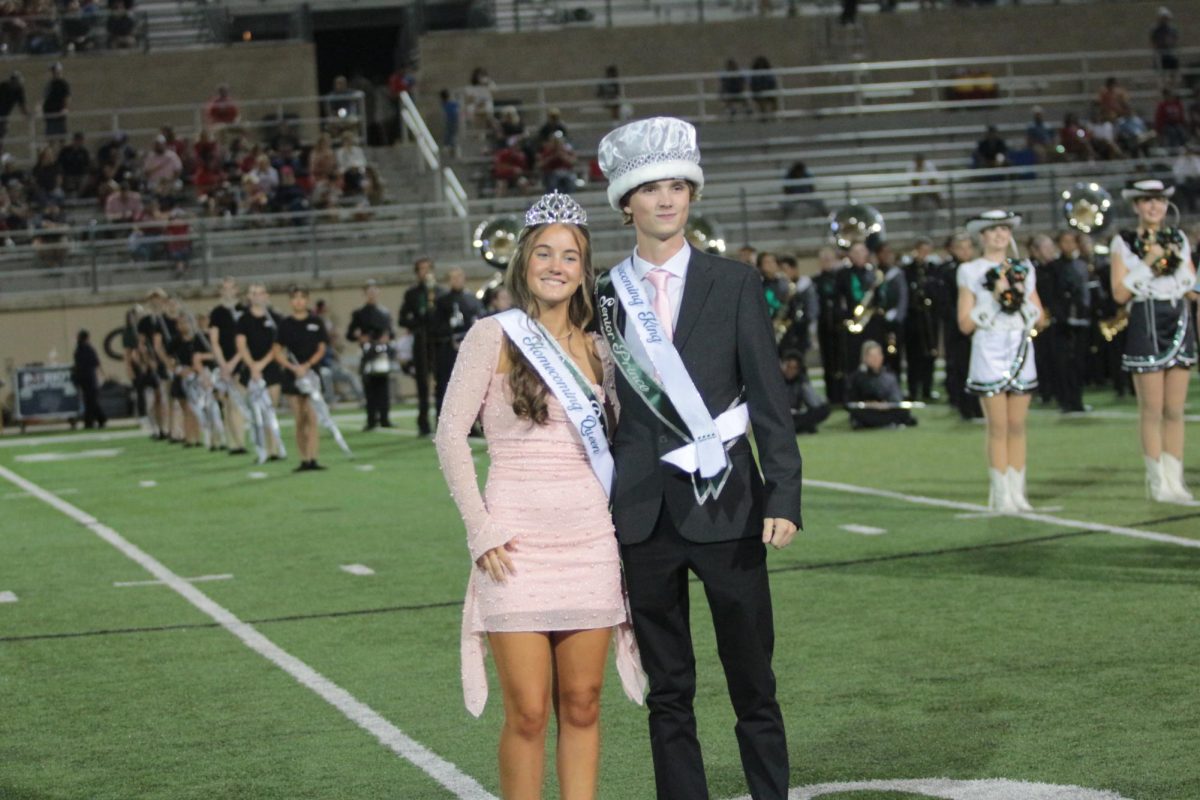





![Broadcast, yearbook and newspaper combined for 66 Interscholastic League Press Conference awards this year. Yearbook won 43, newspaper won 14 and broadcast took home nine. “I think [the ILPC awards] are a great way to give the kids some acknowledgement for all of their hard work,” newspaper and yearbook adviser Paige Hert said. “They typically spend the year covering everyone else’s big moments, so it’s really cool for them to be celebrated so many times and in so many different ways.”](https://cphswolfpack.com/wp-content/uploads/2025/05/edited-ILPC.jpg)



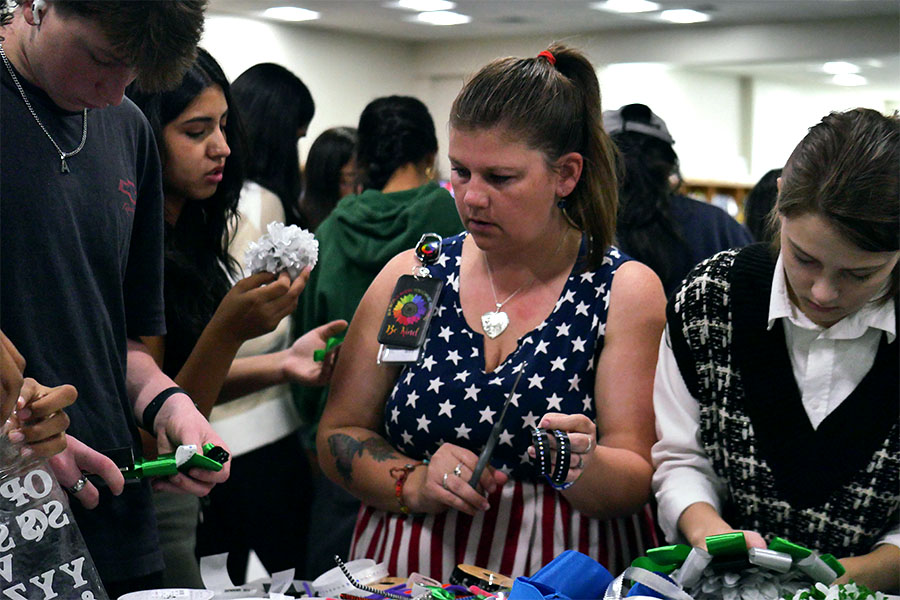

![Looking down at his racket, junior Hasun Nguyen hits the green tennis ball. Hasun has played tennis since he was 9 years old, and he is on the varsity team. "I feel like it’s not really appreciated in America as much, but [tennis] is a really competitive and mentally challenging sport,” Nguyen said. “I’m really level-headed and can keep my cool during a match, and that helps me play a bit better under pressure.” Photo by Kyra Cox](https://cphswolfpack.com/wp-content/uploads/2025/09/hasun.jpg)

![Bringing her arm over her head and taking a quick breath, junior Lauren Lucas swims the final laps of the 500 freestyle at the regionals swimming competition on date. Lucas broke the school’s 18-year-old record for the 500 freestyle at regionals and again at state with a time of 4:58.63. “I’d had my eye on that 500 record since my freshman year, so I was really excited to see if I could get it at regionals or districts,” Lucas said. “ State is always a really fun experience and medaling for the first time was really great. It was a very very tight race, [so] I was a bit surprised [that I medaled]. [There were] a lot of fast girls at the meet in general, [and] it was like a dogfight back and forth, back and forth.” Photo by Kaydence Wilkinson](https://cphswolfpack.com/wp-content/uploads/2025/03/Kaydence-2.7-23-edit-2.jpg)
![As her hair blows in the wind, senior Brianna Grandow runs the varsity girls 5K at the cross country district meet last Thursday. Grandow finished fourth in the event and led the varsity girls to regionals with a third place placement as a team. “I’m very excited [to go to regionals],” Grandow said. “I’m excited to race in Corpus Christi, and we get to go to the beach, so that’s really awesome.” Photo by Addison Bruce](https://cphswolfpack.com/wp-content/uploads/2025/10/brianna.jpg)











